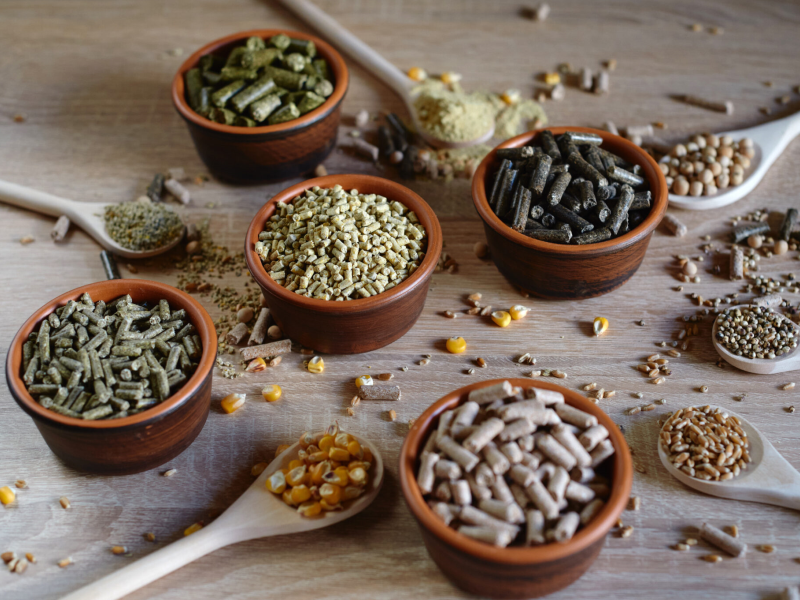Feed Additives

Feed Additives and Their Applications
At MTC Chemical, we offer a wide range of feed additives. These additives are used to support healthy growth in animal nutrition, prevent diseases, and improve overall animal health. Below, you will find detailed information about our feed additives and their applications.
Amino Acids and Vitamins
Amino acids and vitamins play a critical role in the growth and development processes of animals. Ascorbic Acid (Vitamin C) strengthens the immune system of animals, while amino acids such as DL-Methionine support protein synthesis. L-Arginine and L-Lysine HCL improve muscle development and overall animal health. Additionally, vitamins like Vitamin A, Vitamin B1, Vitamin B2, and Vitamin E are essential for various metabolic activities in animals.
Acids and Acid Salts
Acids and acid salts are used to enhance the digestion of feed in the digestive system and to inhibit the growth of pathogenic microorganisms. For example, Acetic Acid (100%-80%) regulates the pH level of feed, while Formic Acid (85%) has antibacterial properties. Citric Acid and Phosphoric Acid enhance mineral absorption in feed, supporting healthier growth in animals.
Disinfectants
Disinfectants are used to maintain hygiene in feed production and animal housing. Formaldehyde Solution and Hydrogen Peroxide are broad-spectrum disinfectants that effectively eliminate microorganisms. Sodium Hypochlorite is widely used in water disinfection.
Minerals
Minerals are essential for the skeletal system, immune system, and overall metabolic functions of animals. Zinc Oxide and Zinc Sulfate are used to prevent zinc deficiency, while Iron Sulfate supports blood formation in animals. Sodium Molybdate plays a critical role in enzymatic activities and healthy growth.
Salts
Salts are used in feed additives to maintain water balance, regulate acid-base balance, and support metabolic activities in animals. Copper Sulfate meets the copper needs of animals, while Sodium Bicarbonate regulates the digestive system. Additionally, salts like Potassium Carbonate and Sodium Sulfate play a significant role in maintaining the electrolyte balance of animals.
Other Additives
Other important components in feed additives include substances like Ammonia, Glycerin, and Monopropylene Glycol. These substances enhance the nutritional value of feed, improving the overall health of animals. Components like Technical Urea and Tetrapotassium Pyrophosphate are used as protein sources in feed, raising energy levels.
General Product Characteristics
Below is a table summarizing the characteristics and applications of the feed additives mentioned above:
| Product | Application | Features |
|---|---|---|
| Ascorbic Acid | Vitamin | Strengthens the immune system |
| DL-Methionine | Amino Acid | Supports protein synthesis |
| L-Arginine | Amino Acid | Improves muscle development |
| Acetic Acid | Acid | Regulates pH levels |
| Formaldehyde Solution | Disinfectant | Eliminates microorganisms |
| Zinc Oxide | Mineral | Prevents zinc deficiency |
| Copper Sulfate | Salt | Meets copper needs |
| Ammonia | Additive | Enhances nutritional value of feed |


